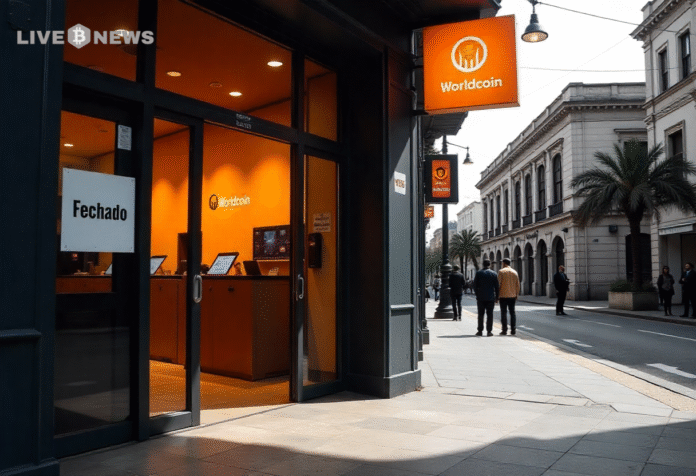A CPI witness attests that all Brazilian verification locations of Worldcoin have paused operations under official investigation and action by ANPD.
A highly critical testimony was given to the Iris Parliamentary Inquiry Commission (CPI) about the fact that all of the verification locations of Worldcoin in Brazil have shut down.
On September 16, Joaquim Lopes Alves, the Festejola do Brasil LTDA legal representative who was acting on behalf of Tools for Humanity (TFH), was deposed in the matter of the closure.
Lopes Alves explained that the presence of the company in Brazil was to run the physical locations where the irises of citizens were scanned as a part of the World ID project.
These sites were distributed throughout São Paulo in order to reach a wide and educated audience. He claimed that the project lasted three months, which was completed in the first quarter of 2025.
Verification Locations Paused: What Went Amiss?
This pause was pursued following a request by the National Data Protection Authority (ANPD) to “maintain suspension of the granting of financial compensation”. World is legally able to provide verification services in Brazil, without granting the WLD token.
Lopes Alves stated that Tools for Humanity had no intention of doing so until the regulatory investigation concluded. He explained that TFH asked Festejola (operator) to pause verifications while it worked to provide clarifications to ANPD.
Between March and July, TFH voluntarily paused all verifications in Brazil, which had previously taken place only in its own spaces.
Operations have now resumed, not through fixed locations, but at technology partner events where the company is present. Verifications are being carried out again, but without any financial compensation.
The CPI is now investigating the model of TFH in Brazil, whether the incentives the participants were provided with were legal and ethical.
Lopes Alves characterized this payment to users as a form of incentive as opposed to payment, which contradicted the arguments that individuals sold their iris information.
The members of CPI expressed concern about possible data fraud and misuse associated with the program.
The Big Picture: Tech Meets Regulations
Lopes Alves described the World ID as a medium- to long-term fund initiative sponsored by investors interested in digital security.
The anonymization of data is the focus of the system, and as highlighted by him, this would make the online world a safer place in an increasingly virtual world.
But council members such as Janaina Paschoal indicated that TFH did not have a formal registered office in Brazil, and had to depend on partnership to continue to operate. This brought the question of transparency and conformity to national laws.
Inconsistencies in the testimony, particularly financial incentives and data control, were observed by João Ananias, another CPI member.
The investigation is still ongoing, and there are still questions over the handling and security of the iris data.
This witness and research indicate that biometric projects have serious regulatory issues that work at the international level. The disruption in the operations of retail outlets in Brazil associated with Worldcoin can be interpreted as a big blow to the startup in the Latin American region, even though Worldcoin is not completely shut down in Brazil.
The project continues to operate normally across several Latin American countries, including Argentina, Colombia, Peru, and Mexico. As an innovative technology, it is natural for governments to raise questions.
The CPI session is also available on the official site and YouTube account of the City Council of São Paulo. The inquiry is still going on to observe the effect on the privacy and security of consumer data.





